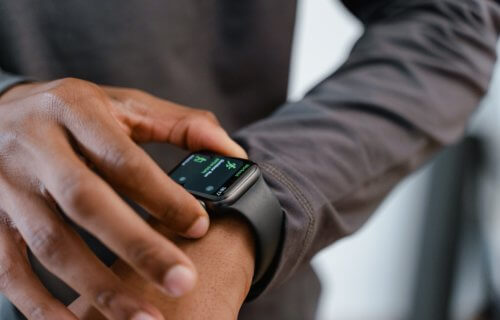NEW YORK — Smartwatches and fitness trackers like Fitbit have the potential to monitor individuals’ mental health and well-being, according to recent research. Scientists suggest that devices such as the Apple Watch can remotely evaluate psychological states, eliminating the need for traditional questionnaire-based assessments. Resilience, the capacity to overcome adversity, plays a crucial role in mitigating stress, reducing illness, and enhancing the management of chronic diseases.
“Wearables provide a means to continually collect information about an individual’s physical state. Our results provide insight into the feasibility of assessing psychological characteristics from this passively collected data,” says Dr. Robert Hirten, the first author of the study and clinical director for Hasso Plattner Institute for Digital Health at Mount Sinai, in a media release.
“To our knowledge, this is the first study to evaluate whether resilience, a key mental health feature, can be evaluated from devices such as the Apple Watch.”
Mental health disorders, which account for 13 percent of the global disease burden and will affect one in four people at some point in their lives, are prevalent.
“The growth of digital technology presents an opportunity to improve access to mental health services for all people,” says senior author Dr. Zahi Fayad.
He noted the disparities in mental health access across geographic and socioeconomic statuses and emphasizes the necessity for an improved understanding of psychological risk and a more effective means of monitoring the results of psychological interventions.

The study also demonstrated that applying machine learning or artificial intelligence (AI) to passively collected data could help identify patients’ resilience and overall well-being. The research was based on data analysis from the “Warrior Watch Study,” which observed the heart rate rhythms of 329 healthcare workers across seven hospitals for a week. These individuals, equipped with Apple Watches, also completed surveys on resilience, optimism, and emotional support. The collected metrics proved predictive in identifying these outcomes.
“We hope that this approach will enable us to bring psychological assessment and care to a larger population, who may not have access at this time,” says Micol Zweig, co-author of the paper and Associate Director of Clinical Research at the Hasso Plattner Institute for Digital Health at Mount Sinai. “We also intend to evaluate this technique in other patient populations to further refine the algorithm and improve its applicability.”
The U.S. team intends to continue utilizing wearable data to study a variety of physical and psychological disorders and diseases. They believe that the concurrent development of sophisticated analytical tools, including AI, will facilitate the examination of data from these devices and apps. Such analyses could identify patterns linked with specific mental or physical health conditions.
The study is published in the JAMIA Open.
You might also be interested in:
- Here’s how TikTok can affect your mental health
- Healthiest Cities In America: Top 5 Places For Wellness, According To Experts
- Best Fitness Trackers For 2023: Top 5 Wearable Tech Devices Recommended By Experts
South West News Service writer Mark Waghorn contributed to this report.

